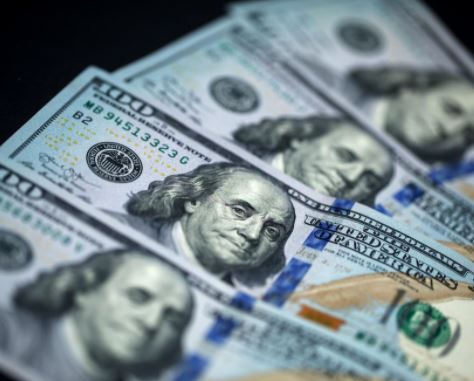A father and his two sons were charged yesterday in connection with a “ten-percenting” scheme in which they allegedly cashed winning Massachusetts st
A father and his two sons were charged yesterday in connection with a “ten-percenting” scheme in which they allegedly cashed winning Massachusetts state lottery tickets on behalf of the ticket holders to avoid taxes on the winnings.
Ali Jaafar, 62, and Yousef Jaafar, 28, both of Watertown, and Mohamed Jaafar, 30, of Watertown and Waltham, and were each indicted on one count of conspiracy to defraud the Internal Revenue Service, one count of conspiracy to commit money laundering and multiple counts of filing false tax returns.
According to the charging documents, the defendants conspired with others to purchase winning lottery tickets from the actual winners for cash, at a discount that was typically between 10-20 percent of each ticket’s value, thereby allowing the ticket holders to avoid reporting the winnings on their tax returns – a scheme commonly known as “ten-percenting.”
The defendants and co-conspirators then allegedly presented the winning tickets to the Massachusetts Lottery Commission as their own and collected the full value of the tickets.
It is also alleged that the defendants reported the ticket winnings as their own on their income tax returns and improperly offset the claimed winnings with purported gambling losses, thereby avoiding federal income taxes.
Between 2011 and 2019, the defendants together cashed more than 13,000 lottery tickets and claimed more than $20,989,284 in Massachusetts lottery winnings. Based upon their submitted lottery claims, in 2019, Ali Jaafar was the top individual lottery ticket casher for Massachusetts. Mohamed Jaafar was the third highest individual ticket casher and Yousef Jaafar was the fourth highest individual ticket casher.
The charge of conspiracy to defraud the Internal Revenue Service provides for a sentence of up to five years in prison, three years of supervised release, a fine of $250,000 or twice the gross gain or loss, whichever is greater, and restitution.
The charge of conspiracy to commit money laundering provides for a sentence of up to 20 years in prison, three years of supervised release, a fine of $500,000 or twice the value of the property involved in the transaction, whichever is greater, restitution and forfeiture.
The charge of filing false tax returns provides for a sentence of up to three years in prison, one year of supervised release and a fine of $250,000 or twice the gross gain or loss, whichever is greater. Sentences are imposed by a federal district court judge based upon the U.S. Sentencing Guidelines and other statutory factors.
Acting United States Attorney Nathaniel R. Mendell and Ramsey E. Covington, Acting Special Agent in Charge of the Internal Revenue Service’s Criminal Investigations in Boston made the announcement. Assistance was provided by the Massachusetts State Lottery Commission. Assistant U.S. Attorney Sara Miron Bloom of Mendell’s Securities, Financial & Cyber Fraud Unit is prosecuting the case.
The details contained in the charging document are allegations. The defendants are presumed innocent unless and until proven guilty beyond a reasonable doubt in a court of law.
Support journalism by clicking here to our GoFundMe or sign up for our free newsletter by clicking here
Android Users, Click Here To Download The Free Press App And Never Miss A Story. It’s Free And Coming To Apple Users Soon

COMMENTS